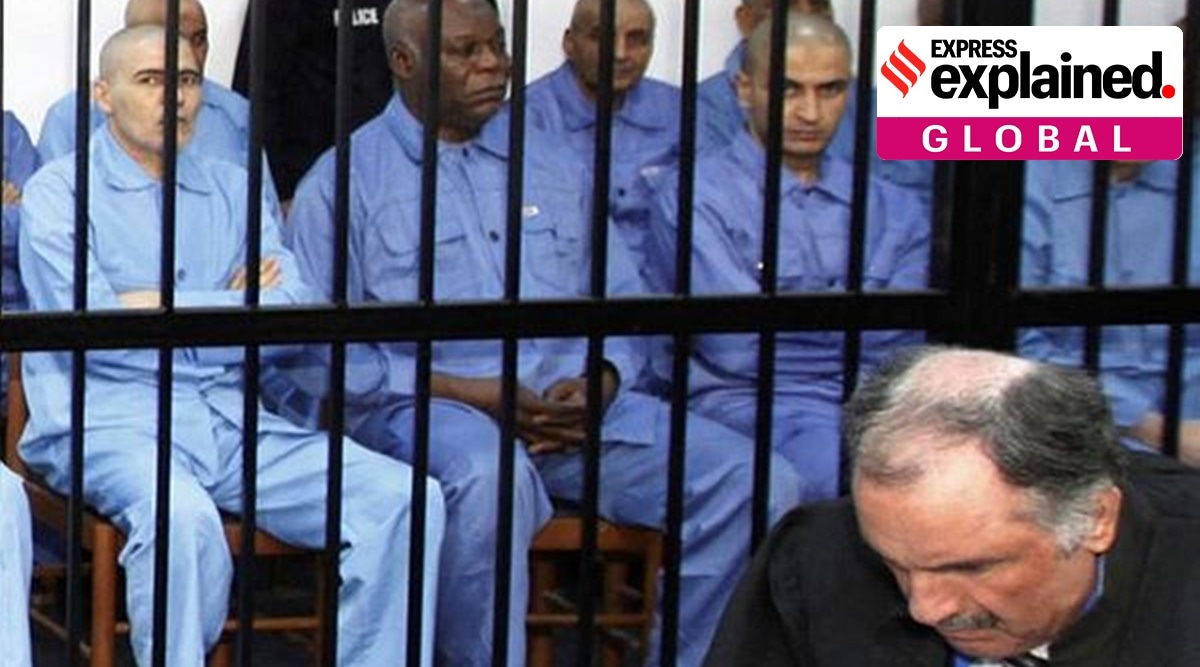What was the 1988 Lockerbie attack that killed 270 people, and for which a Libyan is now in US custody
The Lockerbie bombing was the biggest terrorist attack to be carried out on UK soil. Here is what happened in Scotland on December 21, 1988.

Authorities in Scotland said Sunday (December 12) that a Libyan man named Abu Agela Mas’ud Kheir Al-Marimi, suspected of making the bomb that destroyed a passenger plane over Lockerbie, Scotland, in 1988 is in US custody. The majority of those killed in the explosion were Americans.
The Lockerbie bombing was the biggest terrorist attack to be carried out on UK soil. Scotland’s Crown Office and Procurator Fiscal Service said in a statement: “Scottish prosecutors and police, working with the UK government and US colleagues, will continue to pursue this investigation, with the sole aim of bringing those who acted along with al-Megrahi to justice.”
Here is what happened on the Pan Am flight 103 that was flying over Lockerbie on December 21, 1988, leaving 270 people dead.
How did the Lockerbie attack happen?
On the day, a bomb planted aboard Pam Am Flight 103 exploded less than half an hour after the jet departed London’s Heathrow airport, bound for New York. The attack destroyed the jet, which was carrying citizens from 21 countries. Among the victims were 190 Americans.
Investigators soon tied the bombing to Libya, whose government had previously been involved in hostilities with the US and other Western governments. About two years before the attack, Libya was blamed for the bombing of a Berlin disco that killed three people.
Who was behind the attack?
In 1991, the US charged two Libyan intelligence officers with planting the bomb aboard the jet. But the country’s leader, the late Col. Moammar Gadhafi, refused to turn them over. After long negotiations, Libya agreed in 1999 to surrender them for prosecution by a panel of Scottish judges sitting in the Netherlands.
One of the men, Abdel Baset Ali al-Megrahi, was convicted and given a life sentence. The other, Lamen Khalifa Fhimah, was found not guilty. Scottish officials released Al-Megrahi on humanitarian grounds in 2009 after he was diagnosed with prostate cancer. He died in Libya in 2012.
Megrahi had immediately lodged an appeal, insisting he was innocent. According to The Guardian, five years after he lost that appeal, the Scottish Criminal Cases Review Commission (SCCRC) ruled in 2007 his conviction could be unsafe, returning it to court. In 2009, however, Megrahi was diagnosed with terminal cancer, and abandoned his case after winning compassionate early release.
The families of those killed, meanwhile, brought suit against the Libyan government, demanding they be held accountable. In 2003, Libya agreed to a settlement, formally accepting responsibility for the bombing, renouncing terrorism and paying compensation to the families. The pursuit of others responsible for the bombing was largely stalled, until after Ghadafi was ousted from power in 2011.
What is Masud accused of?
After Ghadafi’s fall, Masud, a longtime explosives expert for the country’s intelligence service, was taken into custody by Libyan law enforcement. In 2017, US officials received a copy of an interview with Masud done by Libyan authorities soon after his arrest.
In that interview, US officials said, Masud admitted to building the bomb used in the Pan Am attack and working with the two men charged earlier to plant it on the plane. He said the operation had been ordered by Libyan intelligence and that Ghadafi had thanked him and others after the attack, according to an FBI affidavit. In late 2020, the US Justice Department announced charges against Masud.
With Masud in Libyan custody, though, his prosecution remained largely theoretical. US and Scottish officials pledged to work for his extradition so that he could be tried. It was not clear Sunday how Masud was taken into US custody. He would be the first to appear in an American courtroom for the prosecution of the attack.
(With inputs from AP)